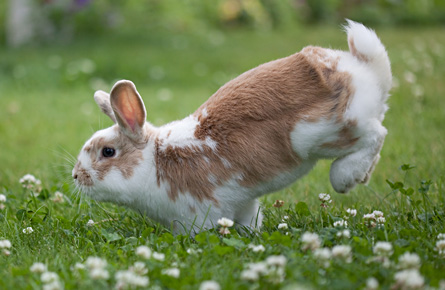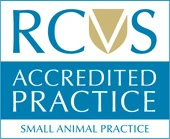The only secure method of granting protection against several serious illnesses that still affect cats in the UK is through cat vaccinations in Oxford. Frequent cat vaccines can provide lifelong protection for your feline companion when administered as directed by your veterinarian.
Immunity and cat vaccinations in Oxford
The body's innate capacity to fend off illness is called immunity. A little but completely safe dosage of the vaccinated illness is administered to the body as part of a cat vaccination in Oxford to create protection.
Immunity in kittens
During the first few weeks of life, a kitten's immunity is often provided by the mother's first milk, or colostrum. But after a few weeks, this immunity quickly wanes, making the kitten vulnerable to illness. Vaccinating cats can now assume responsibility for their safety.
Book a cat vaccination in Oxford
What diseases do we vaccinate against?
Cat ‘flu (feline upper respiratory tract disease)
Frequent in the UK and, particularly in kittens and elderly cats, quite severe. Cats can contract it from one another directly or by sneezing. symptoms as excessive tiredness, a high fever, and runny nose and eyes. The greatest defence against the illness is regular cat immunisation.
Infectious enteritis (feline panleucopenia)
Although the disease is very uncommon, unpleasant, and sometimes deadly, cat immunisation has proven to be quite effective in controlling it.
Feline leukaemia
When cats fight or even just groom each other, a virus can spread. After infection, it may take months to manifest, but once it does, the immune system of the cat will be suppressed, leading to tumours, further infections, and eventually death. The cat immunisation programme is progressively controlling this illness.
Chlamydophila felis
can result in conjunctivitis and is most common in homes with several cats and kittens.
Rabies
If you intend to travel with your cat overseas, they must be vaccinated against a deadly disease that is not present in the UK.
Kittens First Vaccination in Oxford
Typically, a series of two shots spaced at least a few weeks apart is administered during your kitten's initial vaccination in Oxford. Cat vaccination schedules should be discussed with your veterinarian if you adopt a kitten that is older than 9 weeks old. This is the first round of immunisation that may be administered at that age. Concurrently, the veterinarian will examine your kitten's overall health.
It takes a few days for immunity to develop following a cat vaccine. When it's okay to let your kitten to socialise with other animals will be determined by your veterinarian.
Eventually, your cat may get immune to a disease and become vulnerable. Boosters may be necessary, depending on the condition. An annual veterinary examination will include a general health assessment and the provision of any necessary booster vaccines.
You will receive a vaccination card that details the history of your cat's immunisations and the date of the next booster shot. This will need to be seen by the catteries, so make sure to save it carefully and bring it with you to your cat's annual exam.
New kitten?
Vaccinating your kitten is crucial for their health and will play a major part in their preventive care for the rest of their life. Create an account online with us to schedule a visit at Boundary Vets in Oxford.
Book a cat vaccination in Oxford
Cat Vaccinations FAQs
Why are cat vaccinations necessary?
Vaccinations are essential for providing your cat with adequate protection from life-threatening and debilitating diseases. There is the option of Titre testing, which involves blood samples to determine your cat’s immunity. Unfortunately, this can be costly to perform and is not always 100% reliable. Cats staying in boarding or cattery facilities are often required to be vaccinated if you're planning to go on holiday.
Do indoor cats need vaccinations?
Indoor cats still require vaccines, but this may be a reduced course that only includes cat flu and enteritis. However, many indoor cat owners still have a full vaccination course each year just in case their cat decides to go out exploring!
What happens if you don't vaccinate your cat?
Deciding not to vaccinate runs the risk of your cat contracting various harmful diseases. If you also want to travel with your cat or need them to stay in boarding facilities or catteries, most of these require up-to-date vaccination status and will not accept unvaccinated animals. An annual vaccination course can help to protect your cat so they can live a happy and healthy life.
Should you vaccinate an older cat?
As long as your cat is fit and healthy, we would always recommend vaccinations for your cat. These vaccinations provide protection from harmful diseases on a yearly basis when kept up with correctly.
How much does it cost to vaccinate a cat?
To find out more about the costs involved in vaccinating your cat, you can see our Procedures & Pricing page.
At Boundary Vets, we offer out Cat Pet Health for Life plan which helps you spread the cost of your pet's healthcare across the year, whilst ensuring they receive the right treatments throughout the year. Vaccinations are included in our Pet Health for Life Plans. Find out more today and sign your cat up with us.
Can a vet tell if a cat has been vaccinated?
There is no way to tell if a cat has been vaccinated physically; however, if your cat has a vaccination card, previous vet records or microchip details, our team can look into your cat's history where possible
Save money on your pet’s preventative care

Our Pet Health For Life Plan provides comprehensive care across your Pet’s lifetime, with the cost broken down into monthly instalments.
Annual health check, vaccinations, flea and worm treatment, microchipping, 2 vet consults and 2 nurse consults a year and discounted services are included in the plan.







